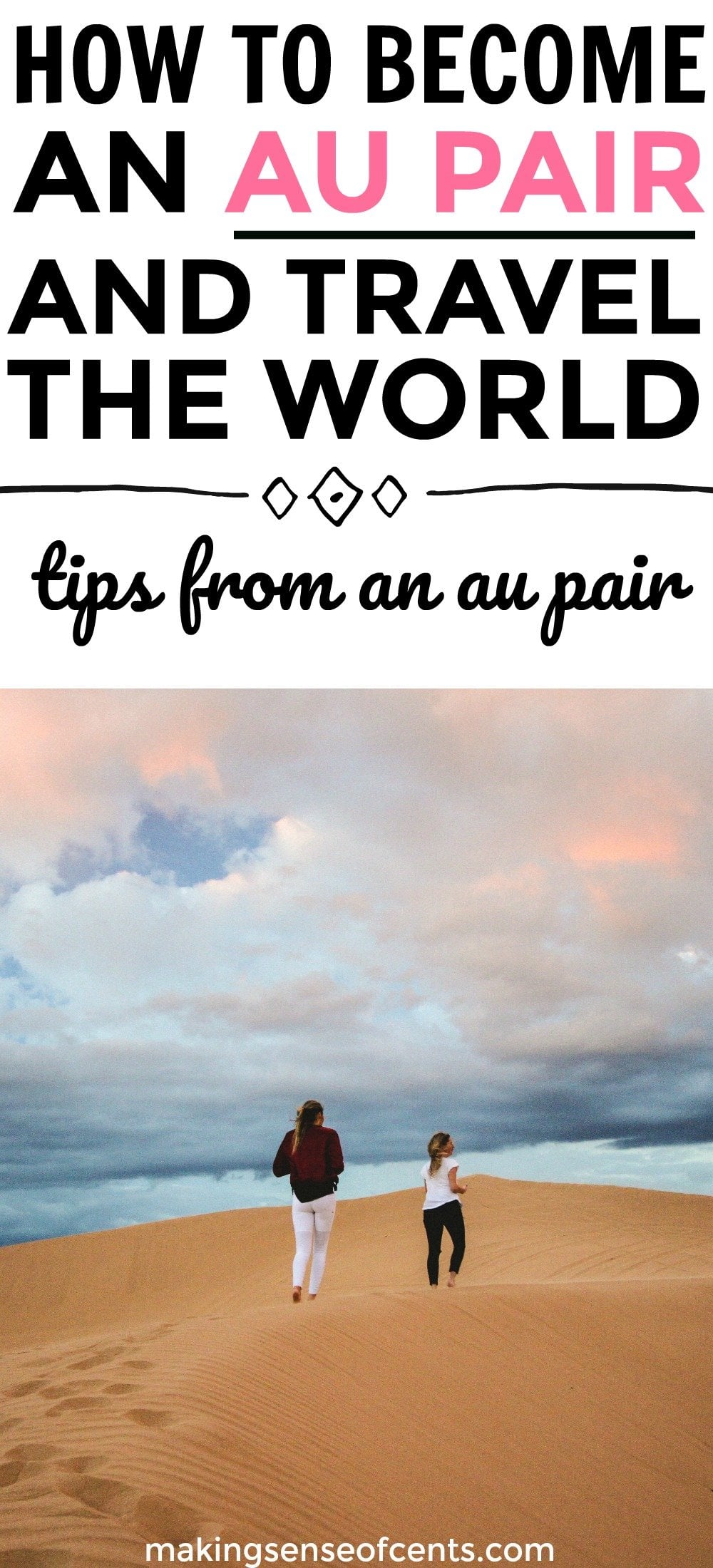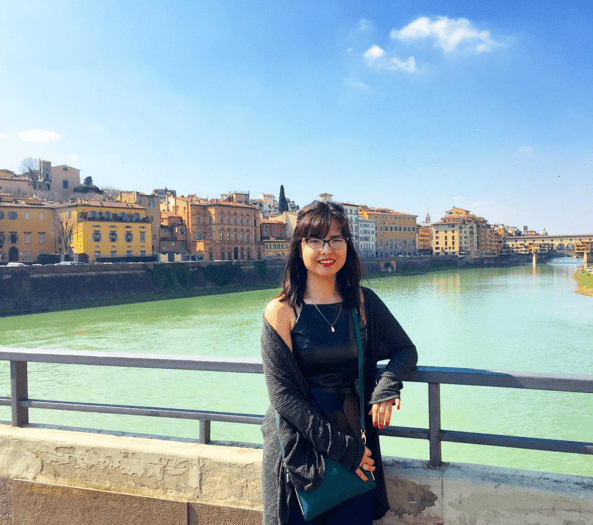
Hello! I’m Alexis, Michelle’s sister, and the writer at Fitnancials.com. I have been traveling about once a month for nearly 2 years.
Currently, my traveling has led me abroad to Bologna, Italy, a town of about 400,000 residents.
You have probably heard of Bologna being the food capital of Italy, which means every dinner is amazing and aged wine is abundant.
Traveling is not always cheap, especially for a college student who lives on her own. However, learning about new cultures and seeing the world is very important to my happiness, so I make traveling work no matter how much money I have.
Last summer I lived in Peru, where I volunteered at a local special needs orphanage and lived off of only $20 a day. I recently decided to go an even cheaper route and become an au pair, which costs me no money at all.
Related articles on how to become an au pair:
- 75+ Ways To Make Extra Money
- 10 Ways To Make Money Online From The Comfort of Your Home
- How I Made Over $300,000 Blogging in 2015
- How to Live On One Income
Below are some common questions I’ve received about becoming an au pair. If you have other questions about how to become an au pair please leave a comment below.
How to become an au pair:
How much does an au pair expect to make monthly?
In Italy, an au pair can expect to make approximately $250-$350 USD per month.
If you decide to become an au pair somewhere such as Australia or New Zealand, you can expect to rack in that amount weekly. I’m not sure why the pay is so different, but seeing Europe was more important to me than seeing Australia, especially since I went to eastern Australia during winter break.
What are the benefits of becoming an au pair?
Traveling is extremely easy and efficient in Europe.
Last week I went to Florence, Milan, Padova, Zurich, Munich and even had a little pit stop in Austria.
How much did I pay? This is a common question I’ve received lately. For six cities in four different countries I paid exactly 75 euro, which equates to $85 USD.
All of my expenses are pretty much paid for as an au pair. With my host family and I’s agreement, I’m getting the following:
- An iPhone with texting, internet, and phone calls.
- Groceries entirely paid for, as well as reimbursement for special vegan groceries.
- I get free trips wherever the family goes while I’m here as an au pair (they have a beach house on the Adriatic Sea that we visit regularly).
- I get to drive a cute little Fiat if I need a car. However, I refuse to drive in Italy unless I absolutely need to, because the driving here seems so different.
- I get my own room and bathroom, free laundry, and I can use anything in the house. Obviously, I get free room and board, which is in a home very close to the downtown center of Bologna.
Learning the native language is much easier when you are fully immersed in the culture, and there are usually free language classes offered if you look hard enough. I am currently taking Italian classes four hours a week for $0, and tandem meetups are offered every week at local pubs. If falling in love sounds interesting to you, you are in luck with plenty of single Italian men and women in Bologna, which houses the oldest university in the Western Hemisphere.
What are the negatives of becoming an au pair?
While being an au pair is great and can be a lot of fun, there are some negatives as well:
- You’re suddenly living back with parents again.
- You essentially live at work.
- The kid, or kids, could end up being a royal pain in the butt.
- You could end up working extra hours with no say, unless you are courageous enough to have an uncomfortable conversation and complaining to the parents that you LIVE with.
How do you find a host family and become an au pair?
My family was found through AuPairWorld. This is the most popular website to use when finding a host family.
The site is completely free, and I did all of the work myself, which is extremely easy by the way.
I have met a few people who used agencies and usually regretted it afterwards. Agencies cost a lot of time and money. You have to send in a bunch of verifications such as your passport, drivers license, background checks, etc. I ALMOST went through an agency and seriously sent in 15 different forms of identification, references, and other forms that they asked for. The agency was also charging ME over $500 to become an au pair for a mere three months. Many outsiders suspect that agencies are the smart way to go, but I would disagree (from what I have heard), as they are not much help and essentially choose the family for you.
I found my Italian host family entirely by myself, and it only took three days to finalize our contract. I did a simple Skype interview with the parents, and then had two more interviews to get familiar with their son, Tomasso.
My position and expectations from the family: I’m solely there to speak English, and that is all I have to do. I am not in charge of any kind of chores, house cleaning, or errands.
What questions should a potential au pair ask a host family?
Before you just jump on an au pair position, you should ask the family several questions. These questions include:
- What is the work schedule? According to Europe’s rules and regulations you should not be working more than five hours a day and should have at least one full day off of work per week.
- What are the au pair’s expectations?
- Is the au pair more of a “big sister” (or brother), who will become a part of the family, or a babysitter in charge of cleaning and doing chores/errands?
- How is the English in the family? This is a good question if you’re not familiar with the native language.
- Will you be paid extra if the child is sick or if the parents decide to have date night?
Other tips on how to become an au pair:
Of course I have more tips on how to become an au pair than just the above.
- It’s best to choose a family with past references, but don’t let that totally control your decision when choosing a family. A few of my au pair friends chose a family with zero references, and their families ended up being great. All families have to start somewhere.
- If you decide to become an au pair for a short amount of time, choose a city that is in close proximity to efficient transportation. If you decide to live in a small city understand the possibility that going anywhere outside your city during a workweek might be quite impossible. I live in Bologna, which is the 7th largest city in Italy, making transportation very easy, especially since I am in the center where most trains meet and branch off to other cities and countries.
- My last, and by far most important, tip is to take what the current au pair reference is saying with a grain of salt. Current au pairs are still living with the family and are under pressure to say good things about the family. Why would the au pair tell you the family is terrible? Obviously the family will most likely find out that the au pair said something negative if future au pairs never respond again.
My au pair experience.
My au pair experience has been extremely positive.
I’m learning SO much about Italian culture that I would not have learned if I was only visiting the country for a vacation. Being fully immersed in a culture that is so different than mine allows me to think and live outside of the box. I have become more open minded toward different lifestyles and have the ability to live like a native Italian.
Would I recommend others become an au pair?
It truly depends on your current lifestyle and how much you enjoy being around kids. This may come to a surprise to most, but I do not want kids, yet I essentially spend all of my time with a kid. I love working and hanging out with kids, but I can never imagine having to care for my own. This job is not for everyone, especially since you have to live and follow certain rules and regulations being under another family’s roof.
If you are unsure, I would recommend becoming an au pair for three months and then extend from there if you think the family is a right fit for you. Becoming an au pair is surely one of the best ways to truly experience a culture without spending a large chunk of change.
Are you interested in learning how to become an au pair? Why or why not?






Leave a Reply